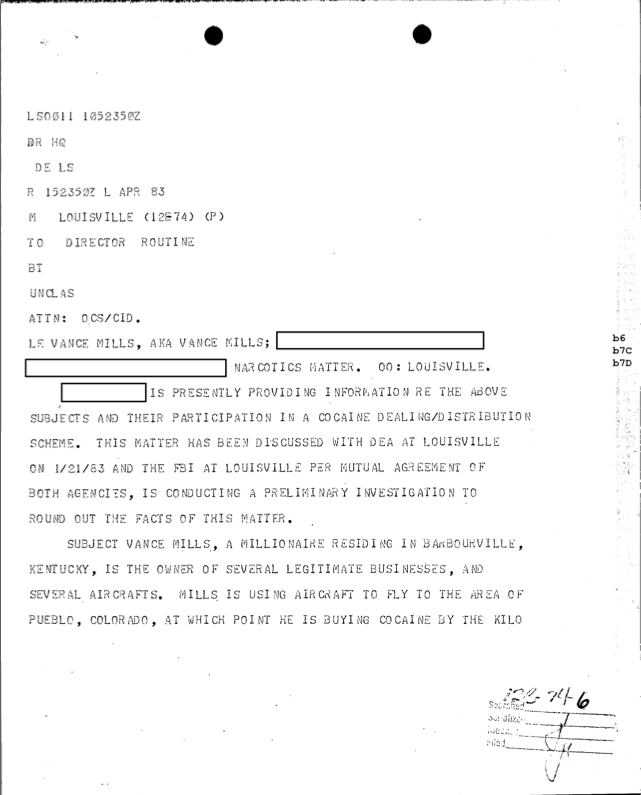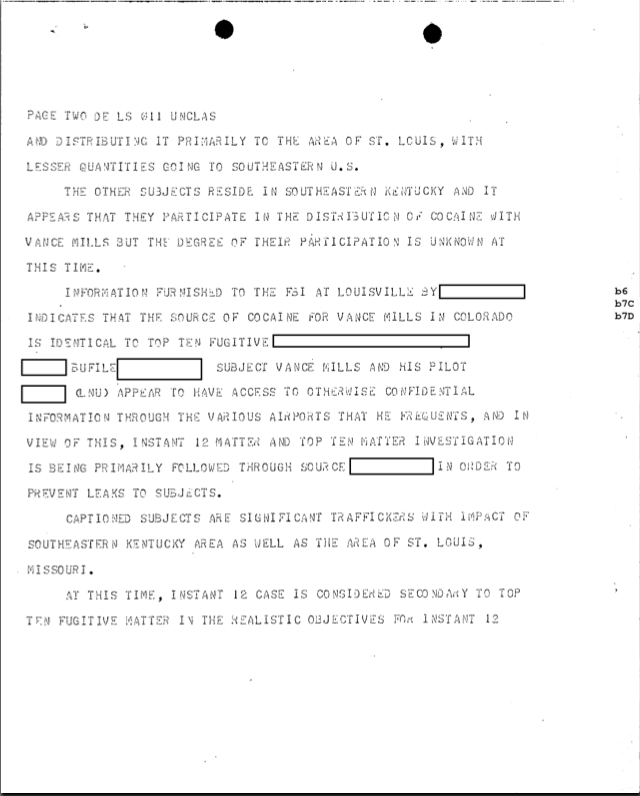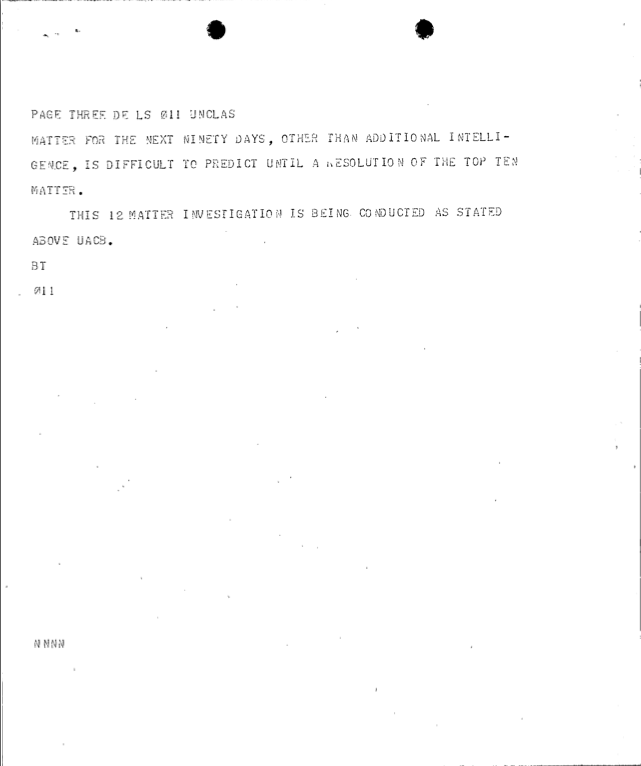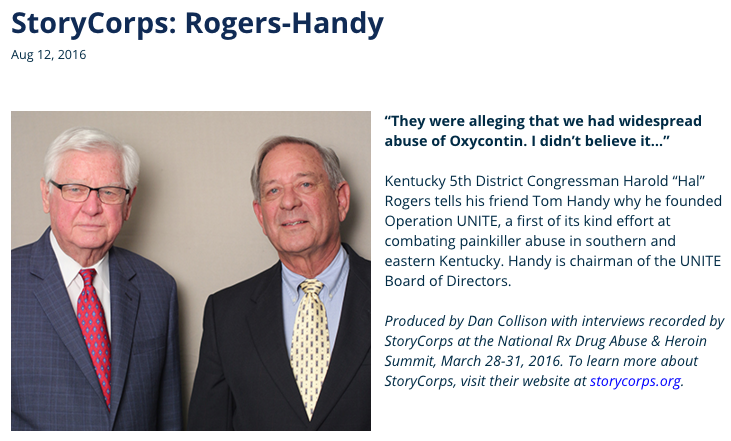As it would turn out, Vance Mills’ name would be mentioned one time in all the court proceedings against Delmar Partin for the murder of Betty Carnes. What I’m sure most court spectators heard as an innocuous statement, I see it as a gateway to the truth as to what really happened to this 37-year-old mother.
Betty Carnes’ husband, Phillip Carnes, had just begun working at a store owned by Vance Mills a few weeks before his wife’s killing.
Phillip Carnes’ boss at this store was Donnie Baker. The same Donnie Baker who had been charged with hiring out the Black Horse Lounge arson hit in 1989; Baker was out on appeal when Betty was murdered. Approximately a month and a half after the murder, Donnie Baker’s appeal for the arson conviction was rejected and he was sent to prison for 15 years. At least it was so ordered at the time.
Now, before his wife’s murder, Phillip may have been having employment issues due to a bad back. He states in court transcripts he had held a couple of different jobs within the last year or so, and that his new job was with “Judy Baker’s husband.” It does sound like his potential to earn income was being affected by his health. He testified under questioning by Delmar Partin’s attorney, Gary Crabtree, that:
“Donnie had leased the store off of Vance Mills…I talked to him about it and he said he would let me try it because I have, I have quite a bit of problems with my back and I have certain problems about if I stand for a while or sit for a while, or if I do certain things, you know…I told him [Baker] I would try, I would try that job to see if I could do that job.”
Incidentally, I would also discover Judy Baker and Betty Carnes had been close friends at one time; Judy Baker used to work at Tremco. However, Judy was not working at Tremco when Betty was killed, and Judy stated their friendship had cooled after the birth of Judy’s son.
Phillip Carnes’ connection to Vance Mills and Donnie Baker is significant, as well as his wife’s friendship with Donnie Baker’s spouse, Judy. Remember, Mills had been under investigation for importing “large quantities of marijuana and cocaine from Mexico to the United States.” It’s very possible that as Judy Baker’s friend and confidant, Betty may have been privy to many secrets concerning Vance Mills and Donnie Baker’s ventures together.

At any rate, Phillip Carnes, who was already having employment trouble, begins a new career at a store owned and ran by hardened criminals. Sounds like something law enforcement should look into, doesn’t it?
They did not.
Remember, all that is required in a cover-up is for people like the Kentucky State Police and Tom Handy to not investigate, that which they should have investigated. I can confidently say the Betty Carnes murder was covered-up and this is why:
Tom Handy, the man who prosecuted Delmar Partin for a crime he did not commit, never told anyone, not the judge, not the defense attorneys, and not the jury, that Phillip Carnes’ boss, Donnie Baker, was a violent criminal for hiring out the arson of the Black Horse Lounge in June of 1989.
Tom Handy further participated in a cover-up when he did not disclose Phillip Carnes’ boss, Donnie Baker, was working as a criminal informant for his office and the Kentucky State Police during the time of Betty’s murder. The Knox County Commonwealth Attorney wrote an affidavit to the Henderson County court in the spring of 1994 advocating Baker’s early release from prison because of that relationship. It worked. Baker was relieved of his 15 year sentence for arson-for-hire and was paroled a little over a year later.


Even Delmar Partin’s own defense attorney, Gary Crabtree, had to have known about Donnie Baker’s violent past and relationship with Tom Handy: Michael Goforth, Gary Crabtree’s law partner, was Donnie Baker’s attorney who prepared the document for shock probation for the arson conviction which included the Commonwealth’s affidavit. This all while the Crabtree and Goforth firm is supposed to be providing the best representation they can offer to Delmar.
Remember what the son of the prosecutor in the arson case said about Donnie Baker:
“I know that ring that was involved in that Black Horse thing, it was a Eastern Kentucky group that had moved over and was using the Black Horse as a front. And they were a pretty dangerous group…we were pretty convinced at that point that they were, that there was, they were at least planning some sort of assassination attempt on my father, to the point where the police wanted him to wear a bulletproof vest into court…”
At the scene of the crime…
I wish I could say this was the only disturbing twist to the story, but what I’m about to tell you? That’s only the tip of the iceberg.
Donnie Baker was with the coroner Jerry Garland, at the Tremco factory for hours that night while the victim was missing, and before the body was found. Let me re-iterate that: a violent criminal was with the Knox County coroner (who, incidentally, would never be called to testify) that night at the factory while Betty was missing, hours before her body would be discovered. One eyewitness told me:
“Everybody was wondering what Jerry Garland was doing there when there hadn’t been a body. And Donnie, you know, he had no business whatsoever cause he wasn’t a cop, or a coroner, or nothing…”
Why do you think Donnie Baker and Jerry Garland were there together? Jerry Garland, an oil man, was far from being pure as the driven snow. His partner in G&M Oil was none other than Vance Mills. Rumors of prostitution and gambling at Garland’s gas stations were rampant, at one point even earning him charges of promoting gambling.
Are you still inclined to believe Delmar Partin committed this crime?
Noteworthy financial transactions after the Betty Carnes murder
It’s possible these transactions were entirely coincidental in regards to the timeframe of Betty’s murder. Therefore it is also possible they were not coincidental. The financial players are significant, the timing is significant and in the interest of scrutiny, I think notable enough to mention here.
A little over a month after Betty’s murder, Donnie and Judy Baker buy a pretty expensive property in Lancaster, Kentucky:

And then, nine months later, it appears they sell the same property to Vance Mills’ and Jerry Garland’s oil company, G&M Oil, for a profit of what appears to be approximately $27,000.

Coincidence? Entirely plausible. Did the original loan to purchase the property come from Vance Mill’s bank, American Fidelity? That’s another great question we may eventually be able to answer.
The other financial transactions that left me scratching my head have to do with Tom Handy, the prosecutor himself. Handy owned the Holly Bay Marina on Laurel Lake with his brother. Within three months of the murder trial ending, owners of a neighboring marina had drawn up papers incorporating the name “Holly Bay Marina and Resort,” indicating the property was no longer or was soon to be no longer in the Handys’ possession.
Now I’m sure this is all entirely coincidental, but it turns out the family who would succeed the Handys as owners of Holly Bay, also sold explosives under the name of a business called “Farmer’s Supply.” That is not that eyebrow-raising; being in coal country, explosives are necessary. What is fascinating is that trial transcripts indicate the original barrel that held Betty’s body would end up being taken to a magazine at Farmer’s Supply. (A magazine was where explosives were held in storage.) Why was the barrel taken here of all places? What, if anything, was in the barrel when it was taken there?
Did Jerry Garland own this property and merely lease it to Farmer’s Supply? Note: J.M. Hall is kin to these business owners:


Even though the owners of the neighboring marina (and Farmer’s Supply) obviously have experience running a boat dock, they still paid a $50,000 “consultant on goodwill” fee to Tom Handy himself after they took over his family’s marina.


Again, I’m sure all these connections are coincidental. But notable, nonetheless, just for the sheer fact all have some uncanny link to the murder of Betty Carnes.
Lingering questions someone needs to ask
What father allows his teenage daughter to make a missing persons report about her mother, his wife, and doesn’t even accompany her to the police station?
What father would let his teenage daughter accompany two other, defenseless women, in the middle of the night, to a man’s home he believed kidnapped his wife, to accuse that man of such a crime? What father would do that? I don’t think any parent would do that. I think Phillip Carnes knew from the start Delmar Partin was never a threat to anyone. It’s the only thing that makes sense.












